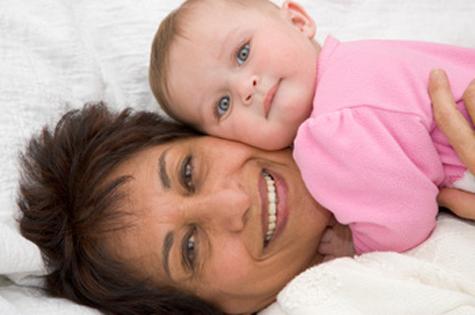While the average age of new mums continues to rise in Australia, a new study shows that as a mother's age at childbirth increases, the risk for behaviour problems in her child decreases.
The research, which used data from the Western Australian Pregnancy Cohort (Raine) Study, aimed to determine whether children's behaviour development was impacted by the age of their parents when they were born.
Information from more than 2,000 families was used in the study, which is significant because it was able to look at large numbers of children across childhood and adolescence, from age 2 up to 17 years, and get first hand reporting from parents over more than two decades of their child's development.
Study author Jessica Tearne from Telethon Kids Institute says the trend in western countries for people to have children later in life has given rise to a number of studies looking at the impact on both their and their children's health and wellbeing.
"Whilst a lot of these studies have looked how older parental age relates to severe mental illnesses, not many have looked at how having older parents influences more general behaviour problems in children." said Ms Tearne.
"The study aimed to determine if kids displayed higher or lower levels of both internalising behaviours, such as stress, sadness or anxiety and externalising behaviours, such as anti-social behaviour or aggression, if their mum was in their mid-30s or older when they were born.
"What we found from studying the data is that the older the mother at birth, the risk of her child exhibiting problem behaviours decreases significantly, after accounting for other important variables such as socioeconomic status. So it's telling us is that when it comes to behaviour, older others and their kids are doing ok."
Study co-author, Telethon Kids Institute researcher Dr Monique Robinson says that whilst the research is reassuring news for older parents, more work is now needed to determine the reason for the drop in risk.
"What the research hasn't been able to tell us yet is why.
"We can only speculate at this stage that influencing factors may include more life experience, more financial stability, more social support or even greater planning or readiness for pregnancy in older mums."
The next step is to find out from these older parents what their experience of starting a family is like and why they choose to give birth at a later age in the hope further research can shed more light.
* * *
The study was published in Paediatric and Perinatal Epidemiology which can be found here



















__small.png)










